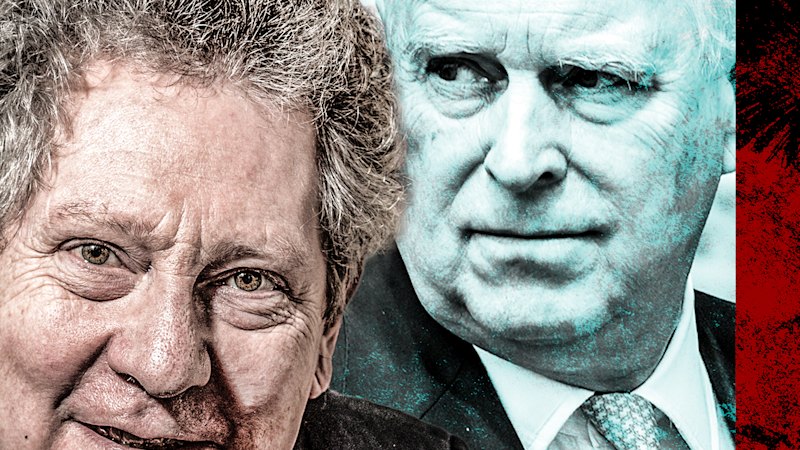
The recent allegations against Prince Andrew have reignited discussions about his controversial actions and the role of the monarchy in enabling them. In a series of interviews, English historian and biographer Andrew Lownie, author of the newly released book, *Entitled: The Rise and Fall of the House of York*, argued that the late Queen Elizabeth II must share the blame for the “monster” her son became.
Lownie has meticulously documented Andrew’s misdeeds and the royal family’s complicity in protecting him throughout his life. He noted that many of the shocking revelations about Andrew, including claims of orchestrating smear campaigns and engaging in inappropriate behavior, were already known to him but could not be included in his book due to legal constraints. He emphasized that the recent disclosures, particularly from Virginia Giuffre‘s posthumous book, are credible due to the reputable background of her ghostwriter, Amy Wallace.
Lownie believes there are further damaging revelations yet to come, particularly concerning national security issues. He suggested that the intelligence services have become increasingly concerned about foreign infiltration within the royal family.
In discussing the monarchy’s longstanding reliance on mystery and reverence, Lownie expressed a desire for transparency and accountability. He asserted that if the monarchy is to endure, it must regain the trust of the people. He acknowledged his identity as a monarchist but described himself as a “slightly more disillusioned” one, increasingly hopeful that accountability will lead to reform.
The historian did not shy away from criticizing Andrew’s character, describing him as a product of privilege who has developed a sense of entitlement that has turned him into a “monster.” He pointed out that the royal family has retained hereditary titles while moving away from hereditary peers in parliament, creating an untenable situation for the monarchy.
As he reflected on his four years of research, which included over 300 interviews and numerous freedom-of-information requests, Lownie identified moments of disbelief that underscored Andrew’s behavior. Instances such as the visit of 40 prostitutes to Andrew’s hotel room in Thailand stood out as particularly shocking, as did the palace’s consistent protection of him from accountability.
Lownie placed significant blame on Queen Elizabeth II, suggesting she had a blind spot regarding Andrew and failed to address his behavior. He stated, “I think the Queen has to take some responsibility for the monster she created.” Although he acknowledged that her other children do not share Andrew’s flaws, Lownie emphasized that the Queen’s enabling behavior contributed to Andrew’s problems.
In light of King Charles III’s ascension, Lownie expressed concern for the stability of the monarchy. He noted that Charles’s handling of the situation surrounding Andrew has been inadequate, describing it as reactive rather than proactive. Lownie anticipates that Charles’s reign will be transitional and that meaningful changes will come under the leadership of his son, Prince William.
As Charles grapples with the fallout from Andrew’s actions, Lownie speculated that the future of the monarchy may hinge on how the royal family addresses these issues. He suggested that there is a growing movement to hold Andrew accountable, mentioning that the British group Republic is pursuing private action against him for sexual assault and misconduct.
Regarding Andrew’s potential legal troubles, Lownie asserted that charges could indeed be brought against him, particularly for misconduct in public office. He anticipates that Andrew may attempt to flee to a country without an extradition treaty with the UK, highlighting the severity of the situation.
Lownie concluded that public outrage could ultimately determine the monarchy’s survival. He noted that if the outcry continues to grow, the institution could face significant challenges. As a historian, he recognizes the gravity of the situation, stating, “If the public outrage continues to rise, it will fall.”
Andrew Lownie’s insights have sparked critical discussions about the future of the British monarchy and the need for transparency within its ranks. His work serves as a reminder of the complexities and responsibilities that come with privilege, particularly within an institution that has long been revered yet is now facing unprecedented scrutiny.






